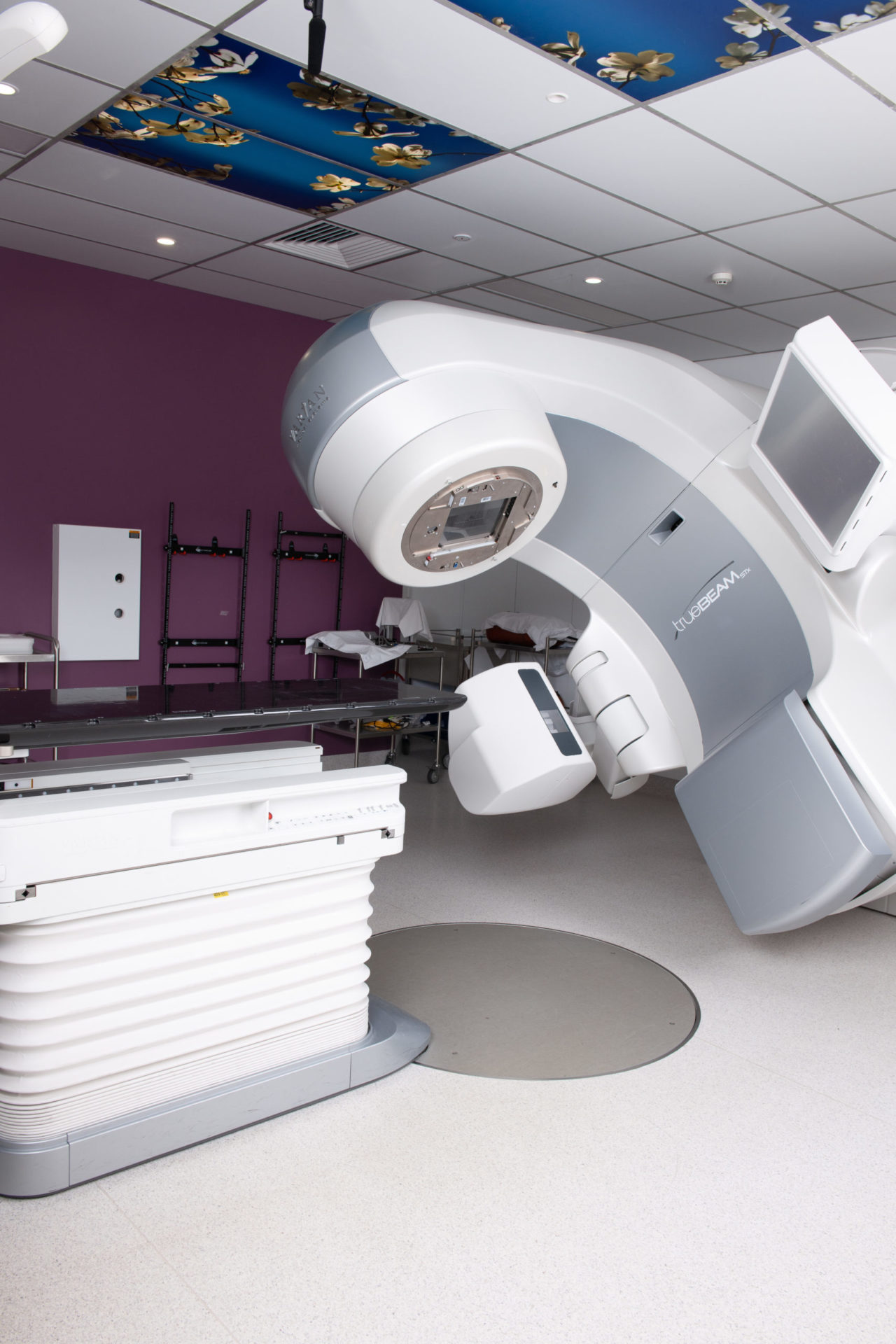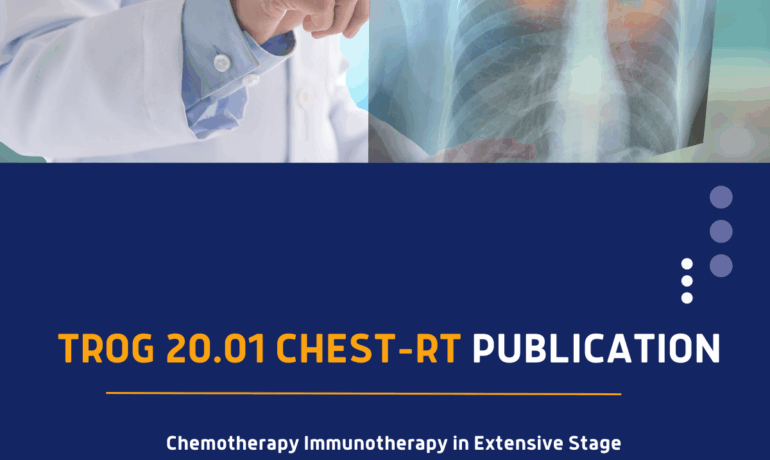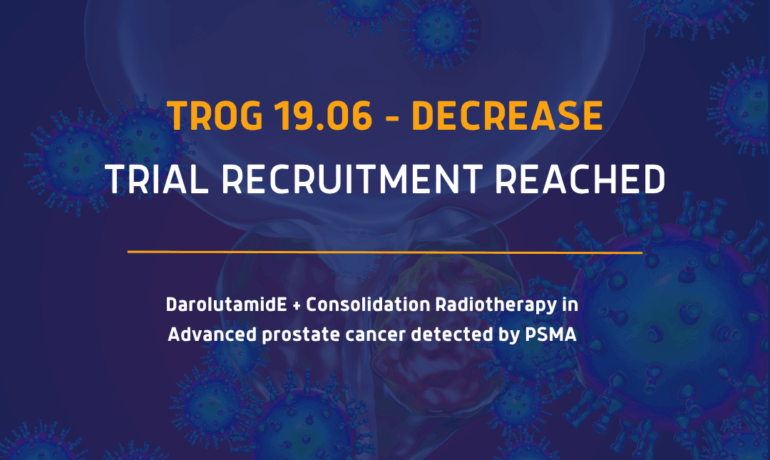Ductal carcinoma in situ (DCIS) of the breast is characterised by abnormal cells in the milk ducts which have not spread into the breast tissue. An international study (BIG 3-07/TROG 07.01) shows that after breast conserving surgery, higher radiation doses to the part of the breast where the DCIS was found, in addition to radiotherapy of the whole breast, significantly reduced its risk of returning in patients with higher-risk DCIS. Compared to 5 weeks of whole breast radiotherapy, the study also shows that the shorter, more convenient 3 weeks of radiotherapy did not increase recurrence.
Today, DCIS affects women all around the world. The results of the study will likely have a significant impact on how patients with DCIS are best managed worldwide. It could also lead to better use of healthcare resources by minimising over or under-treatment of patients with DCIS. Patients from Australia, Belgium, the Netherlands, France, Switzerland, Italy, the United Kingdom, Ireland, New Zealand, Singapore and Canada participated in this large clinical trial involving 1,608 patients. Trans-Tasman Radiation Oncology Group (TROG) Cancer Research and the Breast International Group’s (BIG) global network of breast cancer research groups have been instrumental in facilitating this international collaboration.
Professor Boon Chua, M.D., PhD, Principal Investigator of the DCIS study, Director of Cancer and Haematology Services at UNSW (University of New South Wales) and Prince of Wales Hospital, Sydney, Australia: “The study demonstrates the importance of tailoring radiation treatment of patients with DCIS according to their risks of recurrence to avoid over- or under-treatment. As the majority of these patients are, fortunately, long-term survivors, we need to minimise not only the risk of recurrence but also the long-term side effects of treatment to give them the best quality of life possible”.
DCIS and radiation treatment
DCIS is a condition in which abnormal cells are contained within the milk ducts of the breast. It is not an invasive breast cancer but if left untreated, it may turn into an invasive breast cancer.
After surgery alone, about one-third of DCIS will recur, of which half would be in the form of invasive breast cancer with the potential to spread to other organs. Radiotherapy to the breast reduces recurrence but may lead to over-treatment in some patients and unnecessary costs.
DCIS is a growing health problem since mammographic screening is widely available in many countries. Today, it accounts for up to 25% of new breast cancer diagnoses. However, in contrast to invasive breast cancer, there has been comparatively little research on DCIS. As a result, there are often uncertainties on how individual patients with DCIS may best be managed, especially to reduce the risk of their DCIS from becoming an invasive breast cancer.
Whole breast irradiation after breast conserving surgery for DCIS reduces recurrence including invasive recurrence. The DCIS study investigates if a radiation “boost” to the part of the breast where the DCIS was, in addition to whole breast radiotherapy after surgery, would further decrease recurrence. The study also tests if a shorter course of whole breast radiotherapy (3 weeks) is as effective as the usual longer course (5 weeks) to improve patient outcomes and use of healthcare resources.
In addition, investigators of this study have developed a resource of DCIS tumour samples to enable research that aims to identify a test that predicts recurrence risks in individual patients. The goal is to minimise the risk of developing invasive breast cancer in patients with high-risk DCIS, and spare unnecessary treatment side-effects in low-risk patients.
Practice-changing potential, scientific advances and social benefits
Tailoring radiation doses and number of treatments to the recurrence risks in patients undergoing radiotherapy for DCIS after surgery are of intense international interest. The study is one of the few large-scale clinical trials in DCIS that used highly standardised protocols for radiation treatment, detailed patient data collection, robust quality assurance, and development of one of the world’s largest DCIS tissue resource. Collectively, this comprehensive study has the potential to generate the highquality evidence necessary for improving radiotherapy in patients with DCIS to improve patient outcomes.
Research using the unique DCIS resource of the study may identify markers for recurrence, in particular invasive recurrence. If this future research is successful, a test could be developed to predict the recurrence risks of DCIS and guide treatment decisions by patients and clinicians.
About the DCIS study: an investigator-led global academic collaboration
The DCIS study (BIG 3-07/TROG 07.01) is an academic, investigator-led, randomised phase III study of radiation doses and treatment schedules in patients with non-low risk DCIS of the breast (registered with ClinicalTrials.gov, NCT00470236).
Trans-Tasman Radiation Oncology Group (TROG) Cancer Research is the coordinating group and study sponsor. The study was activated in Australia and New Zealand in 2007, and internationally in 2009 in collaboration with the BIG network including the Canadian Cancer Trials Group (CCTG), European Organisation for Research and Treatment of Cancer (EORTC), Scottish Cancer Trials Breast Group (SCTBG), International Breast Cancer Study Group (IBCSG) and Cancer Trials Ireland (CTIRE).
With the powerful momentum generated by the global investigator team, the accrual of 1,608 patients from 136 centres in 11 countries was completed on 30 June 2014, two years ahead of schedule.
This achievement demonstrates that research on DCIS is a high priority for many patients and researchers. The ongoing challenge is to ensure that this academic study is completed successfully, as the study patients need to be followed-up for 10 years in order to achieve the purpose of the study. Considerable resources are required for the study to yield meaningful practice-changing outcomes, particularly to obtain the cutting-edge biomarker information that will allow personalised treatment of patients with DCIS.
Final analysis of the DCIS study is planned for 2024. The successful conduct to date of this academic, investigator-led study is made possible only by the strong and enduring international alliance of the BIG network.
The study is funded by the Australian National Health and Medical Research Council, Susan G. Komen for the Cure®, Breast Cancer Now, OncoSuisse Swiss Federation Against Cancer, Dutch Cancer Society and Canadian Cancer Society.
Two DCIS substudies
In addition, the DCIS study team completed two international substudies that have been published. Together with the main efficacy analysis presented at the San Antonio Breast Cancer Symposium on December 9, 2020, they provide robust data to support treatment decisions by both patients and clinicians:
Related Post
New paper outlines protocol for important TROG 20.01 CHEST-RT lung cancer trial
TRIAL UPDATE: 15 July 2025 The TROG 20.01 CHEST-RT
Recruitment Milestone Achieved for TROG 19.06 DECREASE Trial
TRIAL UPDATE: 8 July 2025 The TROG 19.06 DECREASE







